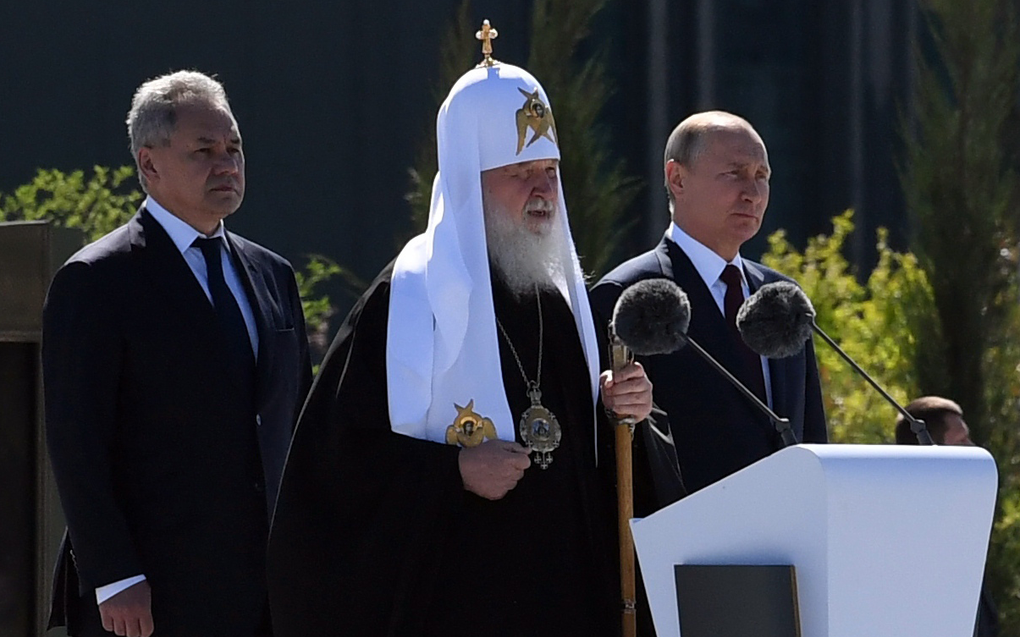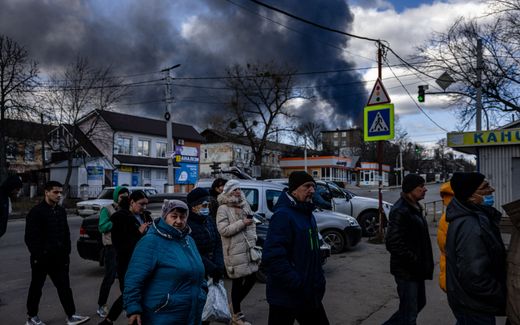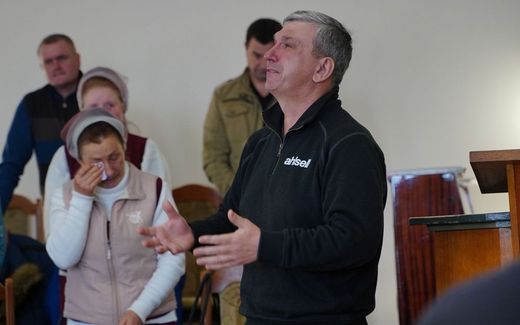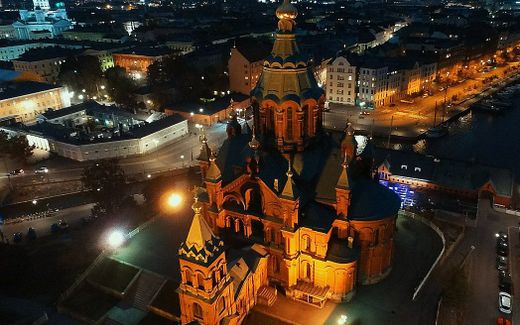Diptych on Russian ideology (1/2): Theologians make statement against ideology of ”Russkiy mir”
14-04-2022
European Union
Church affairs, RD

President Putin with Patriarch Kirill. Photo EPA, Alexei Nikolsky
European Union
Nearly a hundred theologians of international backgrounds have signed a declaration of solidarity condemning the ideology of the “Russkiy mir” (“Russian World” or “Russian World Order”) and the intertwining of Christianity and political power.
Statements of support come from well-known theologians such as Jürgen Moltmann (Germany), Nicholas Wolterstorff (USA), Tomáš Halík (Czech Republic) and Miroslav Volf (Croatia/USA).
The statement stems from an April 4th meeting hosted by the University of Oxford’s Protestant Political Thought project. Christian scholars spoke there about the danger of the Russkiy Mir ideology, the idea that there is a sacred unity between the Russian, Ukrainian and Belarusian peoples. Adherents of this philosophy identify themselves with “the good”, and whoever thinks otherwise belongs to the “evil forces”.
With the statement, Christian academics want to facilitate resistance to the ideology from non-Orthodox Christian quarters while also showing solidarity with a group of Orthodox theologians who released a similar statement last month. It read: “The painful truth (…) is that our own leadership, and in particular the leadership of the Russian Orthodox Church, has developed and promoted a false teaching known as ‘Russkiy mir’, forcing Putin into the religious cartes blanche for his horrific invasion and annexation of Russia’s peaceful, democratic neighbours, Ukraine.”
However, it is too easy to present this ideology as an Orthodox or even Russian problem, say the signatories of the recent “Oxford Declaration”. The same ideas can be found in Christian nationalism, in and outside Europe, namely, where Christianity lays claim to political and cultural power and concepts such as “holy” and “good and evil” take on a political charge. “Such designations,” argue the academics, “represent a secular projection of the end times — but without Christ as his Redeemer and without the true Christian hope. Whether in the form of the Russkiy mir or of Christian nationalism, his claim to Christianity is fundamental and thoroughly false.”
In the statement, the theologians take a stand against these ideas. “We recognise that Christian traditions historically attribute holiness to God alone.” They also write: “The integrity of the Christian witness is distorted when it is used to create divisions between men and men, between race and race, between nation and nation, and between civilization and civilization.”
The signatories call for the development of an ecumenical “post-Christian theology”. They promise to hold a conference about it in 2023. The central question here is how Christianity can influence political thought without claiming dominance.
This article is translated by CNE.news and was previously published in Dutch daily Reformatorisch Dagblad on April 13th, 2022.
Related Articles





